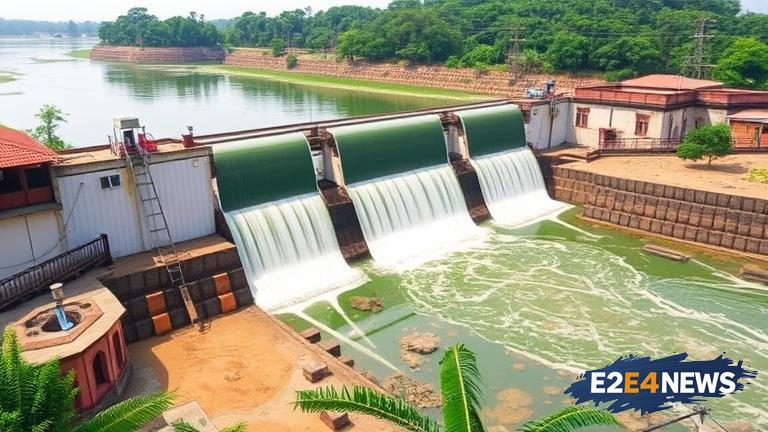The Telangana government, led by Chief Minister K. Chandrashekar Rao, has faced a major setback as the National Green Tribunal (NGT) has halted the Narayanpet-Kodangal lift irrigation project. The project, which aimed to provide irrigation facilities to farmers in the region, has been put on hold due to environmental concerns. The NGT’s decision has come as a blow to the state government, which had been touting the project as a major achievement. The project was expected to benefit thousands of farmers in the region, but the NGT’s order has put the entire project in jeopardy. The NGT’s decision was made after a petition was filed by a group of environmentalists, who claimed that the project would cause significant harm to the environment. The petitioners argued that the project would lead to the destruction of forests and wildlife habitats, and would also cause water pollution. The NGT, after hearing the arguments, decided to halt the project until further notice. The state government has been ordered to conduct a thorough environmental impact assessment and to obtain the necessary clearances before proceeding with the project. The NGT’s decision has been welcomed by environmentalists, who have been opposing the project from the beginning. The state government, on the other hand, has expressed disappointment over the NGT’s decision, saying that it would harm the interests of farmers. The government has vowed to challenge the NGT’s order in the higher courts. The Narayanpet-Kodangal lift irrigation project was one of the flagship projects of the Telangana government, and its halt has raised questions about the government’s ability to deliver on its promises. The project was expected to be completed by the end of 2023, but the NGT’s order has put the entire timeline in doubt. The state government has been facing criticism from opposition parties, who have been accusing the government of ignoring environmental concerns. The opposition parties have welcomed the NGT’s decision, saying that it is a victory for the environment and the people of Telangana. The NGT’s decision has also raised concerns about the future of other infrastructure projects in the state, which may also face similar hurdles. The state government has been advised to take a more cautious approach to infrastructure development, taking into account the environmental and social impacts of such projects. The NGT’s decision is a significant setback for the Telangana government, which had been hoping to showcase the project as a major achievement. The government will now have to go back to the drawing board and re-evaluate the project, taking into account the environmental concerns. The NGT’s decision has also highlighted the need for greater transparency and accountability in infrastructure development, and the need for the government to engage with stakeholders and environmentalists before proceeding with such projects. The Telangana government will now have to work harder to convince the NGT and other stakeholders that the project is environmentally sustainable and socially responsible. The future of the Narayanpet-Kodangal lift irrigation project remains uncertain, and it is unclear when or if the project will be completed. The state government will have to navigate the complex web of environmental regulations and clearances to get the project back on track. The NGT’s decision has sent a strong message to the state government, emphasizing the need to prioritize environmental concerns and social responsibility in infrastructure development. The government will have to take a more holistic approach to development, taking into account the needs of all stakeholders, including farmers, environmentalists, and local communities. The Narayanpet-Kodangal lift irrigation project is just one example of the challenges faced by the Telangana government in its efforts to develop the state’s infrastructure. The government will have to learn from this experience and adapt its approach to infrastructure development to ensure that it is sustainable, responsible, and beneficial to all stakeholders.
